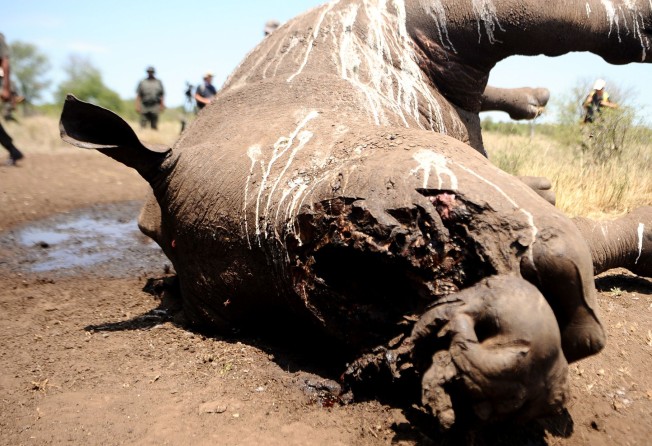Targeting corruption is the key to saving endangered species
Yury Fedotov and John Scanlon say all nations must crack down on the bribery and corruption that enable criminal networks to profit from slaughter

Five years ago, we were in St. Petersburg at the International Forum for Tiger Conservation working with many others to conserve the wild tiger in its natural habitats. At the time, the tiger was hanging on to existence by its claws. Reduced to little more than 3,000 in the wild, the animal was slowly being hunted, skinned and trafficked into oblivion.
Tragically, the tiger has been joined on extinction's edge by a number of other emblematic animals, such as wild populations of rhinos and elephants, as well as a steadily growing host of other creatures and plants not nearly so well known.
The St. Petersburg summit launched the International Consortium on Combating Wildlife Crime, a collaboration of the Convention on International Trade in Endangered Species (Cites), the United Nations Office on Drugs and Crime (Unodc), Interpol, the World Bank and the World Customs Organisation - five organisations that came together to say enough was enough; organisations determined to raise the risk of detection of wildlife and forest crime and end mass illegal slaughter.
Now, we find ourselves back in St. Petersburg for the sixth session of the Conference of States Parties to the UN Convention against Corruption, the world's largest anti-corruption meeting. The convention and this meeting hold tremendous meaning for our activities against wildlife and forest crime. Corruption feeds and sustains wildlife and forest crime, as well as many other crimes. For the criminals to succeed, customs officials must be bribed, logging and hunting licences forged, and investigations and prosecutions hindered.
Given the perilous state of some animal and plant species, every country needs to ratify and implement the convention. But the commitment to full implementation means the prosecution and punishment of offenders, and a global alliance founded on cooperation that embraces international organisations and civil society.
Wildlife and forest crimes are serious, and must be treated as such by nations committed to disrupting the criminal networks that supply this illegal trade.
Tigers cannot change their stripes but we can. For too long, we have been swayed by the fact that corruption is not viewed by all as a serious offence. Tell that to the tigers, rhinos and elephants as they are relentlessly attacked and driven to extinction by criminals who care for nothing but profit. The plain truth is corruption and bribery are the enablers of wildlife and forest crime and they must be vigorously confronted.
If we want to deliver a telling blow to the criminal networks involved in this disastrous crime, we must end corruption.
Yury Fedotov is executive director of Unodc. John Scanlon is secretary-general of the secretariat to Cites